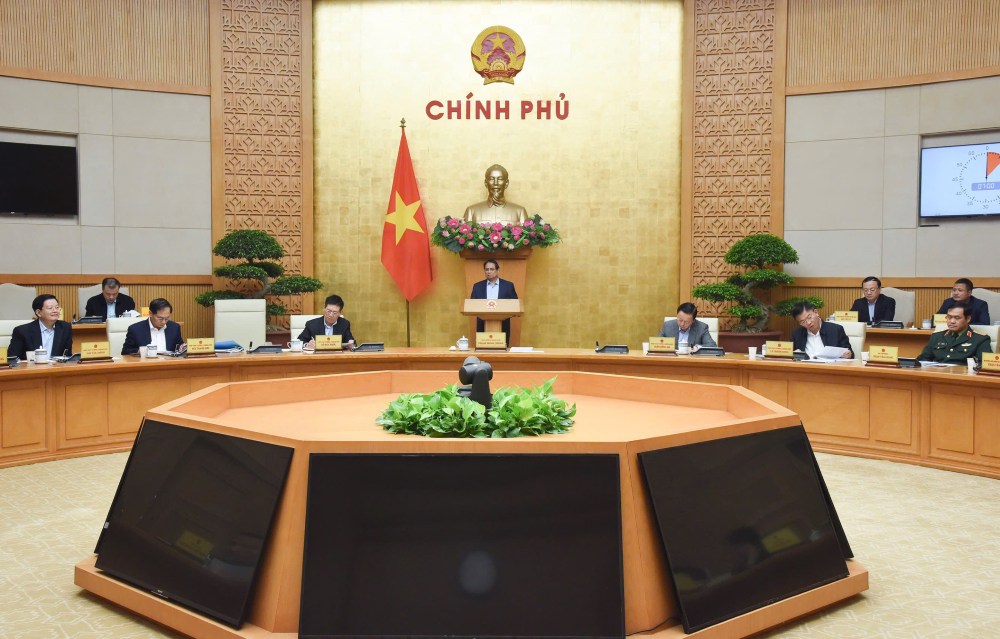On March 19, Politburo member and Prime Minister Pham Minh Chinh chaired a special Government meeting on law-making in March 2025 to discuss and give opinions on 6 draft laws and proposals for law-making.
According to the program, at the meeting, the Government will consider and discuss: Law on Atomic Energy (amended); Law on Water Supply and Drainage; Law on Urban Management and Development; Law on Science, Technology and Innovation; Law on Energy-saving and Efficient Use; and propose the development of the Law on Enterprises (amended).
Speaking at the opening of the meeting, the Prime Minister emphasized that " institutions are the driving force, the resource of development", " institutions are also the bottleneck of bottlenecks and the breakthrough of breakthroughs".
Investing in improving and building laws is investing in development; doing a good job of law-making will create opportunities for development.
Law making is a mandatory requirement in leadership and direction, the Prime Minister requested ministers and heads of ministerial-level agencies and agencies under the Government to directly direct, spend time, effort and intelligence on this work.
Prioritize resources, facilities, and use of technology to build laws to ensure speed, quality, and efficiency.
Thereby, liberating all productive forces including production materials, resources, human resources, historical and cultural traditions... and all other resources for the country's socio-economic development.

The Prime Minister requested that in the process of proposing, supplementing, amending and perfecting legal regulations, it is necessary to ensure 6 clearly: Exemplary contents; amended and supplemented contents; supplementary contents; contents of cutting and simplifying administrative procedures; contents of decentralization, delegation of authority; issues with different opinions and other issues that need to be reported to the Government Standing Committee, the Government, and the Prime Minister for consideration and direction.
The head of the Government stated that the development of new legal documents must ensure the principle of institutionalizing the policies and guidelines of the Party and State; the contents that do not have legal regulations for adjustment; the contents that have legal regulations but have been overcome in practice.
Clarify the contents that need to remove obstacles; simplify and reduce administrative procedures; decentralize and delegate authority; issues with many different opinions...
The Prime Minister directs the development of legal documents to be concise, clear, easy to understand, easy to apply, easy to do, easy to evaluate, easy to inspect and supervise.
He requested that it must be implemented quickly, "at the same time as doing, drawing experience, perfecting, gradually expanding, not being perfectionist, not being hasty", what is ripe is clear, proven to be true in reality, the majority agrees, then apply and legalize.
For issues that are still fluctuating and complicated, especially those related to the socio-economy, we must leave room for completion, summary, replication, and legalization.











